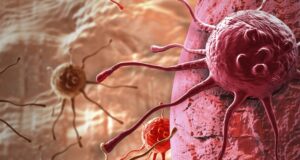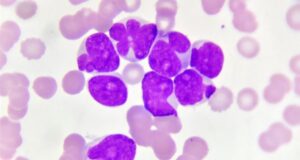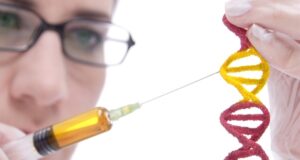
Intermittent fasting has proven benefits for metabolic health, but a new study shows that it could slow hair growth-;at least in mice. Researchers report December 13 in the Cell Press journal Cell that mice subjected to intermittent fasting regimes showed improved metabolic health but slower hair regeneration compared to mice with 24/7 access to food. A similar process might occur in humans, based on a small clinical trial that the team also conducted, but it’s likely to be less severe since humans have a much slower metabolic rate and different hair growth patterns compared to mice.
We don’t want to scare people away from practicing intermittent fasting because it is associated with a lot of beneficial effects-;it’s just important to be aware that it might have some unintended effects”
Bing Zhang (@bingzhang_lab), senior author and stem cell biologist of Westlake University in Zhejiang, China
In addition to its metabolic benefits, previous studies have shown that fasting can improve the stress resistance of stem cells associated with blood, intestinal, and muscle tissue, but little is known about how it impacts peripheral tissues such as skin and hair. Zhang’s team hypothesized that fasting might also be beneficial for skin tissue regeneration, the process by which old and damaged cells are replaced.
To test this, they examined hair regrowth in mice that were shaved and then subjected to different intermittent fasting regimes. Some mice were fed on a time-restricted feeding (TRF) schedule that involved 8 hours of food access and 16 hours of fasting each day, while other mice were subjected to alternate-day feeding (ADF).
They were surprised to find that fasting inhibited hair regeneration. While control mice that had unlimited access to food had regrown most of their hair after 30 days, mice on both intermittent fasting regimes showed only partial hair regrowth after 96 days.
The team showed that this inhibited hair growth occurs because hair follicle stem cells (HFSCs) are unable to cope with the oxidative stress associated with switching from using glucose to fat. HFSCs go through phases of activity and dormancy, and hair regrowth depends on these cells becoming active. While the control mice’s HFSCs began to become activated around day 20 post-shaving and remained active until their hair had regrown, the intermittent fasting mice’s activated HFSCs underwent apoptosis (programmed cell death) during extended fasting periods.
Using genetic engineering methods, the team showed that this fasting-induced apoptosis was driven by an increased concentration of free fatty acids near the hair follicles, which caused a build-up of harmful radical oxygen species within the HFSCs. Free fatty acids also caused human HFSCs to undergo apoptosis in vitro.
“During fasting, adipose tissue starts to release free fatty acids, and these fatty acids enter the HFSCs that were recently activated, but these stem cells don’t have the right machinery to use them,” says Zhang.
In comparison, epidermal stem cells, which are responsible for maintaining the epidermal skin barrier, were unaffected by intermittent fasting. The major difference between these stem cell types is that epidermal stem cells have a higher antioxidant capacity. When the team tested whether antioxidants could mitigate the effects of fasting on hair growth, they showed that both topical application of vitamin E and genetic upregulation of antioxidant capacity helped HFSCs survive fasting.
The team also conducted a small clinical trial with 49 healthy young adults to examine whether fasting similarly affects hair regrowth in humans. They showed that a time-restricted diet involving 18 hours of fasting per day reduced the average speed of hair growth by 18% compared to controls, but larger studies would be needed to verify this effect given the study’s small sample size and short duration (10 days).
“The human population is very heterogeneous, so the effects might be different for different people,” says Zhang. “Mice also have a very high metabolic rate compared with humans, so fasting and metabolic switching have a more severe effect on mouse HFSCs. We see a milder effect in humans-;there are still apoptotic stem cells, but many HFSCs survive. So, there is still hair regrowth; it’s just a little bit slower than usual.”
In future work, the researchers plan to collaborate with local hospitals to investigate how fasting impacts other types of stem cells in the skin and other body systems.
“We plan to examine how this process affects the regeneration activities in other tissues,” says Zhang. “We also want to figure out how fasting impacts skin wound healing and identify metabolites that could help the survival of HFSCs and promote hair growth during fasting.”
This research was supported by the National Natural Science Foundation of China, the Key R&D Program of Zhejiang, the Westlake Laboratory of Life Sciences and Biomedicine, the Research Center for Industries of the Future (RCIF), and the Center of Synthetic Biology and Integrated Bioengineering at Westlake University.
Source:
Journal reference:
Chen, H., et al. (2024) Intermittent fasting triggers interorgan communication to suppress hair follicle regeneration. Cell. doi.org/10.1016/j.cell.2024.11.004.




